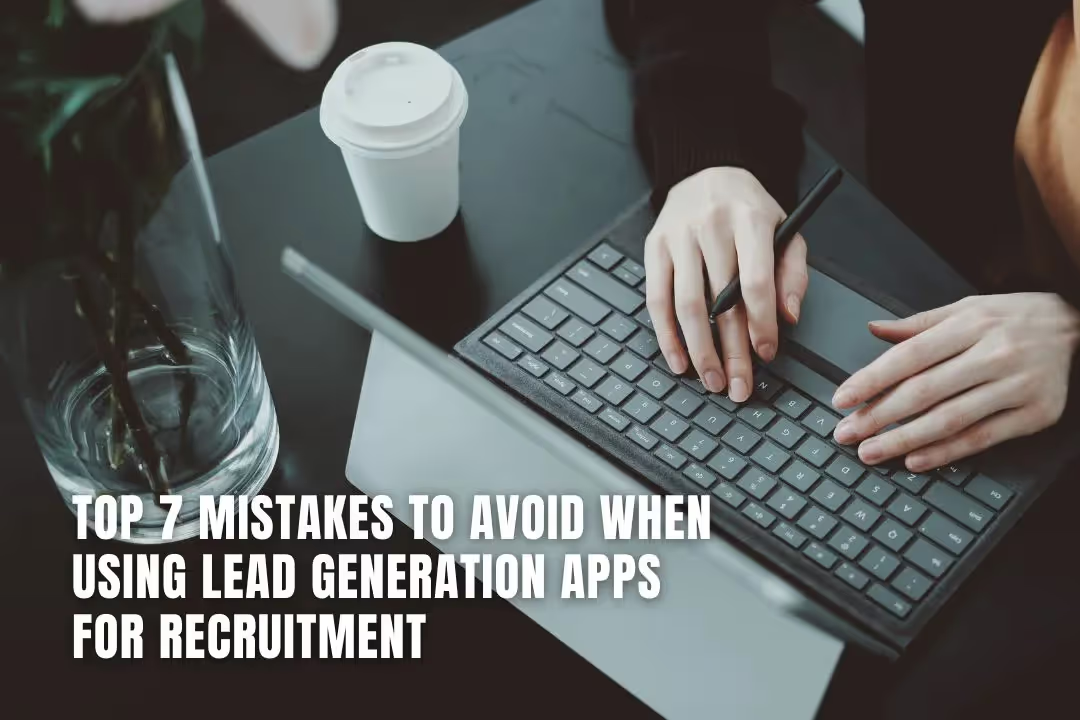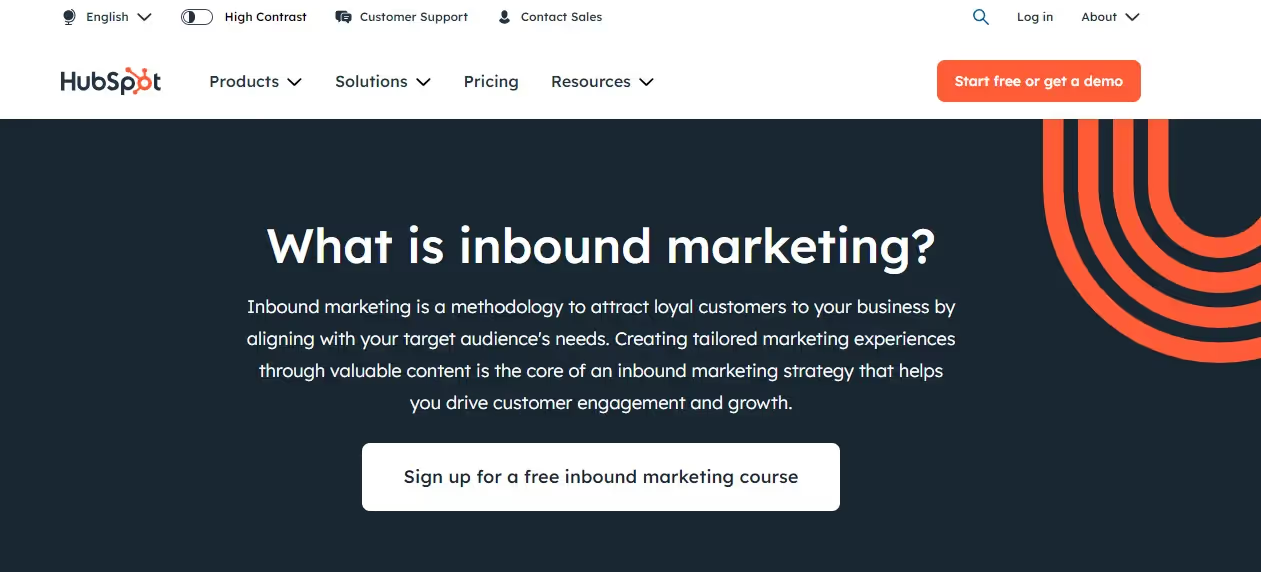
Lead generation apps are a recruiter's dream, right? They promise to find top talent faster than ever before, but using them effectively is key. Imagine spending hours chasing leads that go nowhere, or worse, damaging your company's reputation with spam messages. It's time to avoid those pitfalls!
So, let’s find out the 7 most common mistakes people make with lead generation apps and how to sidestep them.
It's easy to get excited about automation. Lead generation apps can handle a lot of the heavy lifting, like finding potential candidates and sending out initial messages. But if you rely too much on automation, you risk turning your recruitment process into a cold, impersonal experience.
Nobody wants to feel like they're just another name on a list. Candidates want to connect with real people who understand their skills and career goals. If all they get are generic, automated messages, they're likely to tune out or even develop a negative impression of your company.
So, what’s the fix? David Martinez, VP Enterprise & OEM Accounts at Cybernet Manufacturing, adds, “Use automation wisely. Let the apps do the initial legwork, but make sure to follow up with personalised communication. A quick phone call or a thoughtful email can make all the difference in building relationships with top talent.”
Lead generation apps are best, but they rely on good data to work their magic. Aleksander Nowak, Research Analyst at Highticket.io, says, “If your database is full of outdated or inaccurate information, you're setting yourself up for disappointment. Imagine wasting time chasing leads that are no longer relevant, or worse, contacting people with outdated information. It's not a good look!”
Keeping your data clean and up-to-date is crucial for successful recruitment. Make sure you regularly review and update your contact lists, removing any duplicates or outdated information. It's also a good idea to verify email addresses and phone numbers to avoid bouncing messages.
So, what's the fix? Khashayar Shahnazari, Chief Executive Officer at FinlyWealth, explains, “Treat your data like gold. Regularly clean and update your database to ensure you're working with the most accurate information. This will save you time, improve your results, and make a better impression on potential candidates.”
Let's say you're browsing job boards, and suddenly, your inbox is flooded with generic messages from recruiters — all vying for your attention. It's complicated, right? Well, that's exactly how candidates feel when they're bombarded with irrelevant or impersonal outreach from lead generation apps.
It's easy to get caught up in the numbers game, focusing on quantity over quality. William Westerlund, SEO Expert at Tradeit, adds, “Blasting out mass messages to anyone and everyone is a surefire way to turn off potential candidates. Remember, you're not just looking for anyone to fill a role, you're searching for the right person to join your team.”
So, what’s the fix? Put yourself in the candidate's shoes. Take the time to personalise your outreach, highlighting why you think they'd be a good fit for the role and your company. Alex Taylor, Head of Marketing at CrownTV, adds, “Focus on building relationships, not just collecting resumes. And remember, a little respect goes a long way. Avoid aggressive or pushy tactics that could damage your company's reputation.”
You can take an example of HubSpot. They offer companies a suite of tools to streamline their inbound marketing efforts, including features that can be leveraged for recruitment purposes.

Image Source: HubSpot
Companies can use HubSpot's lead nurturing workflows to automatically send targeted emails and content to potential candidates who have expressed interest in the company.
Lead generation apps can give you access to a vast pool of potential candidates. It's tempting to try and reach everyone, hoping to find that one perfect match. But casting too wide a net can be a waste of time and resources.
You'll end up chasing leads that aren't a good fit, while potentially missing out on the ideal candidates who are buried in the noise. It can also lead to frustration and burnout for your recruiting team, who are constantly sifting through irrelevant leads.
So, what’s the fix? Kris Kraze Mullins, Chief Marketing Officer at Capital Max, says, “Focus on quality, not quantity. Use the data and filtering tools available in your lead generation app to identify and target your ideal candidates. Consider factors like skills, experience, location, and even personality traits to narrow your search and focus your efforts on the most promising leads.”
Here, a good example is Eightfold.ai. They offer an AI-powered talent intelligence platform that helps companies improve their recruitment process by matching candidates to the right roles based on skills and potential, rather than just keywords on a resume.

This helps companies reduce time-to-hire and improve the quality of their hires by focusing on skills and potential — rather than simply relying on keywords in a resume.
Lead generation apps are a goldmine of data, but only if you're tracking and analysing your results. It's easy to get caught up in the day-to-day tasks of recruiting and forget to measure your progress. But without tracking key metrics, you'll have no idea what's working and what's not.
So, what’s the fix? Robbin Schuchmann, Co-Founder of Employ Borderless, shares, “Set clear goals and track your progress regularly. Monitor metrics like response rates, conversion rates, and time-to-hire to identify areas for improvement and optimise your recruitment strategy. Use the data to refine your approach and make informed decisions about where to focus your efforts.”
This will not only improve your results but also help you demonstrate the ROI of your lead generation efforts to stakeholders.
Lead generation apps are best on their own, but they're even more effective when they work seamlessly with your existing HR systems, shares Dan Close, Founder, and CEO at House Buyers. Imagine having to manually transfer data between your lead generation app and your applicant tracking system (ATS) or customer relationship management (CRM) software. It's a recipe for errors, delays, and frustration.
So, what’s the fix? “Choose a lead generation app that integrates seamlessly with your existing systems. This will allow you to automate data transfer, eliminate manual errors, and get a 360-degree view of your candidates,” shares Martin Seeley, CEO of Mattress Next Day.
Lead generation apps are packed with features and functionalities, but it's important to take the time to learn how to use them effectively. Throwing your team into the deep end without proper training and onboarding is a recipe for disaster.
They might miss out on key features, misuse the app, or even make costly mistakes that could damage your recruitment efforts.
So, what’s the fix? Gerrid Smith, CMO of Joy Organics, adds, “Invest in proper training and onboarding for your team. Make sure they understand how to use the app's features, navigate the interface, and interpret the data. Provide ongoing support and resources to help them troubleshoot any issues and stay up-to-date on new features and best practices.”
Lead generation apps can be a huge help for recruiters, but only if you use them smartly. By avoiding these common mistakes and having a good plan, you can use these tools to find and attract the best people, make your hiring process easier, and build a great team.
Remember, it's not just about the tech itself, it's about using it the right way. Focus on building relationships, making sure candidates have a good experience, and using data to make smart choices. With the right approach, lead generation apps can help you reach your hiring goals and stay ahead of the competition.